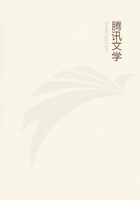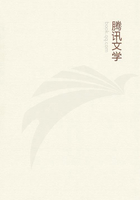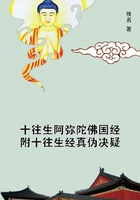The powerful will and effective energy of the young Senator had achieved a legislative revolution. Perhaps, like Geethe's apprentice, he had called into action powers of mischief which he would not be able to control. With the instincts of the politician he had sought to devise a fundamental principle to meet a passing exigency. He had cooked his breakfast over the volcano.
The whole doctrine of popular sovereignty which became thenceforth the central article in his creed did such violence both to law and philosophy as to discredit the acumen of any statesman who seriously believed it. It was a short lived doctrine, speedily repudiated with disgust by the South, in whose interest it had been invented, and rejected as a legal heresy by a Supreme Court of learned advocates of slavery. It is hardly possible that Douglas believed that Congress could delegate its highest duties and responsibilities to a handful of chance squatters on the frontier. This doctrine, to the establishment of which he devoted a great part of the remaining energies of his life, "meant that Congress, which represented the political wisdom of an educated people, should abdicate its constitutional right of deciding a question which demanded the most sagacious statesmanship in favor of a thousand, or perhaps ten thousand, pioneers, adventurers and fortune seekers, who should happen to locate in the Territory."The proposition to give the squatters actual sovereignty in all things was an evident reducto ad absurdium. And yet it was the inevitable result of Douglas' reasoning. The only excuse for the existence of territorial governments was that the inhabitants were not yet ready for the duties of self-government. Squatter sovereignty rested on the assumption that there was no such period of immaturity, and hence no period in which territorial governments were justified.
The clear logic of the doctrine would entitle the first band of squatters on the public domain to organize a State. But it was a superficially plausible proposition that appealed with peculiar power to the uncritical popular prejudice. The equality of men and the right of self government were the central truths of the American polity. The sentimental devotion to these two principles was passionate and universal. A dogma that seemed to embody them was a rare invention, the supreme feat of the highest order of practical political genius.
But the omens were not good. People seemed absurdly in earnest about this harmless political maneuver. Throughout the North rose a storm of vehement protest, not merely from Abolitionists and Whigs but from insurgent Democrats, which resulted in the consolidation of the incoherent anti-slavery factions into the Republican party and its early conquest of the Democratic States of the Northwest.
It developed later that the Northern Democracy was hopelessly ruined by this political masterpiece of the greatest Northern Democrat.
Lincoln, who had been quietly maturing in modest retirement, was roused by this shock and began that memorable battle with Douglas, which finally lifted the obscure lawyer to heights above the great Senator. A resolution endorsing the Nebraska bill was pushed through the Illinois legislature with difficulty, several of the ablest Democrats denouncing it bitterly. Other Northern legislatures either protested against it or remained ominously silent. Throughout the North pulpit and press thundered against the repeal with startling disregard of party affiliations. Three thousand New England clergymen sent a petition protesting against it "in the name of Almighty God." The clergy of New York denounced it. The ministers of Chicago and the Northwest sent to Douglas a remonstrance with a request that he present it, which he did. He was deeply hurt by the angry protests from the moral guides of the people. He denounced the preachers for their ignorant meddling in political affairs, and declared with great warmth that they had desecrated the pulpit and prostituted the sacred desk to the miserable and corrupting influence of party politics. He afterwards said in bitter jest, "on my return home I traveled from Boston to Chicago in the light of fires in which my own effigies were burning."Congress adjourned early in August, but he lingered in the East and not until late in the month did he return to meet his constituents.
The intensity of popular indignation at the North was a disagreeable surprise to him. In Chicago the sentiment was openly and overwhelmingly against him. It was dangerous, now that he had fought his way up to the head of his party and seemed assured of the coveted nomination, to permit himself to be discredited at home.
Four years before he had conquered the hostile city by a speech, and he resolved again to subdue its insurgent spirit. Meetings of disgusted Democrats and indignant Whigs had been held to denounce him. He had been burned in effigy on the streets. He had been charged with loitering in the East afraid to meet the people whom he had betrayed. The changes were rung on the fact that his middle name was that of the traitor, Benedict Arnold. When he entered the city the flags on building and vessels were hanging mournfully at half-mast. At sunset the bells were tolled solemnly. It was truly a funereal reception. Arrangements were made for him to address the people on the night of September 1st in vindication of himself.
The meeting was held in the large open space in front of North Market Hall. The crowd was enormous and ominously sullen. The roofs, windows and balconies of all adjacent buildings were occupied.
There was not a cheer, except from a little band of friends in front of him, as at nearly eight o'clock he rose to speak.















